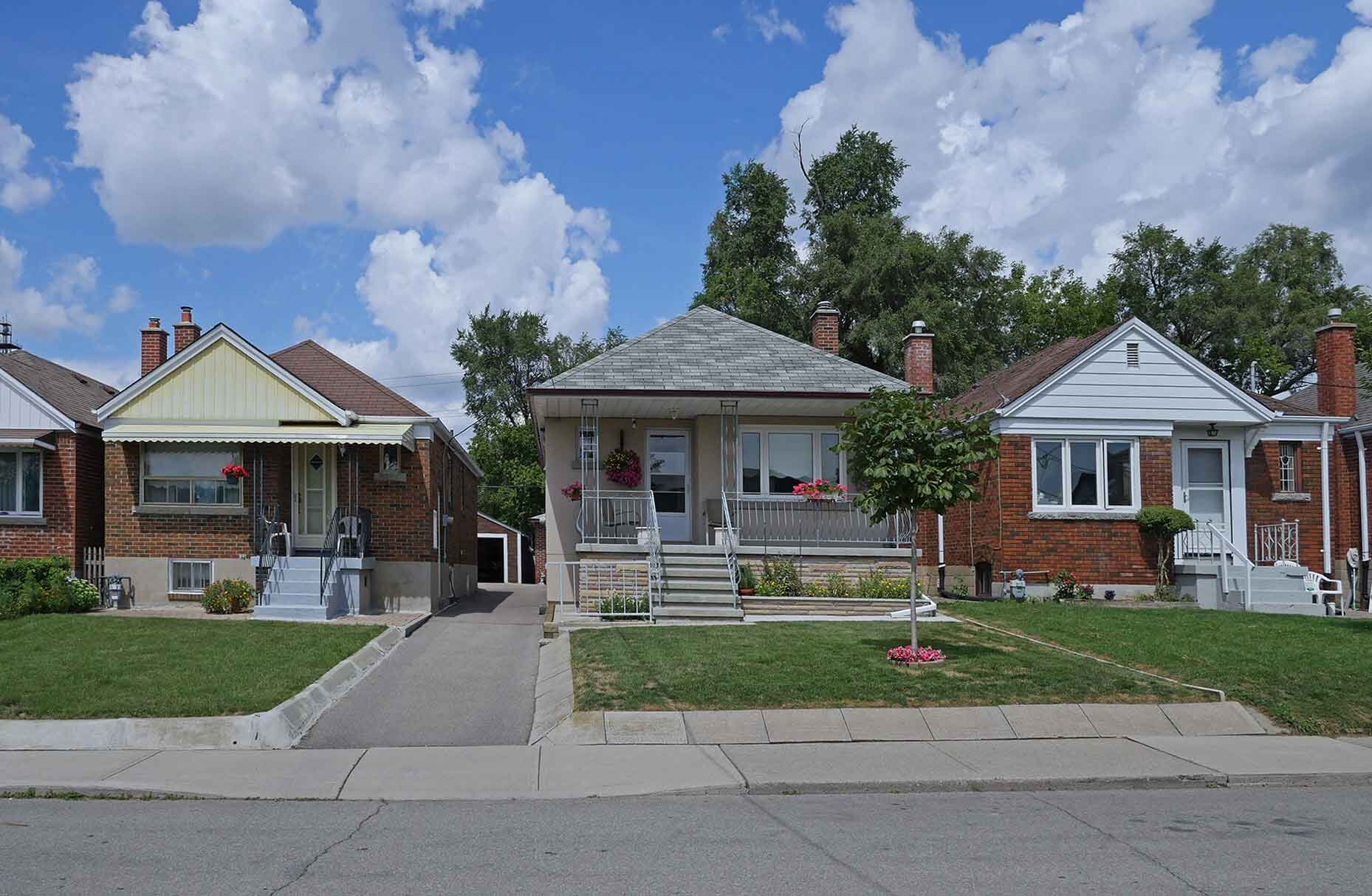
Life does not always go as planned. Things like job loss or health problems can make it hard to stay on top of mortgage payments. When you get overdue notices, you might feel stressed and worried. The foreclosure process can feel scary, but there are ways to deal with it. You do not have to wait for the bank to take your the home. One thing you can do is sell your property. This move can help you stop foreclosure from happening. It also protects your money and helps you start fresh.
Understanding Foreclosure: What You Need to Know
Foreclosure is the legal process the mortgage company uses to take your home when you do not pay your mortgage loan. This usually starts after you have missed several payments. It can hurt your credit score for a long time. After that, it will be hard for you to get other loans in the future.
Knowing how this process works is the first thing you have to do if you want to avoid it. When you know the timeline and your rights, you can make better choices. The best way to stop foreclosure is to act quickly. You can try to make a plan with your lender, or you can sell your home to pay off the loan balance. Let’s take a look at what happens during foreclosure and how you can stay ahead.
Don’t wait for foreclosure to determine your future. Get a cash offer now and regain control of your financial journey.
Get started by contacting us; you’ll receive a cash offer on your house within 24 hours. We can close whenever YOU choose to close – it’s entirely up to you!
The Foreclosure Process
The foreclosure process does not start right away. You have to miss three or four months of mortgage payments first. After that, your lender sends you a letter. People call it a Demand Letter or Notice to Accelerate. This letter tells you how much you need to pay. It also gives you 30 days to pay what you owe.
If you do not pay, the lender will begin formal foreclosure proceedings. Their lawyers will set a sale date for your property. A public auction is often held where your house goes to the highest bidder to pay off your debt. The time this takes can be different from state to state, but you usually have until the sale date to solve the issue.
Yes, you can sell your house even if you have received a foreclosure notice. The important thing is to do this before the auction date. If you act fast, you get to handle the debt yourself. This means the bank will not make the final choice for you.
How to sell your house to avoid foreclosure
Selling your home before the foreclosure process goes too far is one of the best things you can do. If you do this early, you avoid the worst problems of foreclosure and keep control over your money. Acting soon in the foreclosure process helps you keep safe what you have worked hard for.
A pre-foreclosure sale gives you some big benefits that you don’t get with a foreclosure sale. You get to avoid having a big negative mark on your credit report. You can also keep the home equity you have built up over time. If you sell your home for cash, you can speed things up. This way, you will have the money to pay your lender before the deadline.
Here’s why selling early is so beneficial:
- Avoid a foreclosure on your credit report: A foreclosure can be on your record for up to seven years. This makes it much harder to borrow money in the future.
- Protect your home equity: When you sell your home, you get to keep any money left over after you pay off the mortgage. In a foreclosure, you lose that home equity.
- Move on your own timeline: You pick the closing date. The bank does not control when you move out.
GET IN TOUCH
Sell Your House Fast
Can I Sell my House Before Foreclosure?
Yes, you can sell your home even after the foreclosure process starts. Homeowners still have the right to sell their house up until the foreclosure sale or auction. This gives you a way to take control of the issue, pay what you owe to the mortgage company, and maybe even get some money from the sale.
State laws set the rules for how the legal process works. But there is one thing the same everywhere. A home is yours to sell unless the auction is done. It is important for you to know your rights and the timeline. Let’s talk about the legal process when selling your house in foreclosure. Timing matters and it can change your result.
Legal Rights to Sell a House in Foreclosure
You have the legal right to sell your house any time before the foreclosure auction starts. When you get a foreclosure notice, time will be important, but you still own your home. This gives you a chance to list your house and sell it. You can use the money from the sale to pay your mortgage loan.
You need to use the money from selling your home to pay the full mortgage balance. This amount will include the principal, any missed payments, late fees, and what your mortgage company paid for legal costs. To avoid problems, it’s good for you to stay in touch with your lender during all this. That way, things go smoothly.
Some states have something called a “Homeowner Bill of Rights.” This can give you more help. In California, if you show your lender a real offer from a serious buyer, they may have to move back the foreclosure sale by 30 more days. This gives you more time for the sale to go through. It shows why you need to act fast to find a buyer before a foreclosure sale happens.
Selling Before vs. After Receiving a Foreclosure Notice
When you choose to sell, doing it before you get a formal foreclosure notice can make things better for you. If you sell at this time, you get more time to plan and make choices. You also have more control and power. There is a higher chance to get the full market value of your home. Selling before a foreclosure notice often helps to get the best market value of your home.
Once you get a foreclosure notice, the pressure goes up. The lender sets a real sale date, so you have less time to act. With this time crunch, you may feel like you have to take a lower sale price for your home. But selling your home can still be a good choice. Many people find it better than letting the foreclosure finish.
Here’s a look at the differences to help you understand:
| Feature | Selling Before Notice | Selling After Notice |
| Timeline | More flexible; you set the pace. | Urgent; you must sell before the auction date. |
| Control | High; you can prepare the home and negotiate freely. | Limited; you are under pressure from the lender’s timeline. |
| Sale Price | Better chance to get full market value. | May need to accept a lower price for a quick sale. |
| Stress Level | Lower; you are in a proactive position. | Higher; you are reacting to a crisis. |
What Happens if You Sell After Foreclosure Has Started?
It is still possible to sell your home after foreclosure proceedings start. This is better than letting the bank take it. The main goal is to finish the sale of your home before the lender sets the auction date. This way, you get back control and pay what you owe.
When you sell, the sale proceeds will be used first to pay off your mortgage balance. This covers all missed payments, late fees, and any legal costs linked to the loan. If there is money left after paying these, that cash goes to you. This means whatever equity you have in the home will be yours to keep.
If the sale price is less than what you owe, the lender may try to get a deficiency judgment. This means you could still owe the rest of the money. But if you choose to sell the home yourself, you might be able to get a better price than you would at a foreclosure auction. This can cut down, or even remove, the chance of facing a deficiency judgment.
Steps in Selling Your Home Pre-Foreclosure: Timing Is Everything

If you think you might lose your home, each day matters. The sooner you choose to sell, it can help you keep more control over what happens next. The best time to sell is before the foreclosure process starts. This time comes right after you have missed mortgage payments, but before the bank begins the formal foreclosure process. If you sell in this stage, you protect your home equity. You also have a better chance to get the most market value for your home.
Acting fast can help keep a big problem small. A quick sale, like a cash sale, can end the foreclosure process fast. A cash sale can be done in just a few weeks. This can stop things from getting worse with money. Here are the key steps to help you sell your home fast and get a good result.
#1. Preparing Your Home for Sale

To sell your home fast, you need to know what it’s worth. You can get an idea from online estimators. But, to find the real market value, it’s better to talk to a real estate agent. A real estate agent who knows about pre-foreclosure sales can help you with a price that gets buyers interested and makes the sale happen quick.
First, figure out what you still have to pay. This means your mortgage balance, any missed payments, late fees, and property taxes you owe. Take these costs away from what your home might sell for. After you do this, you will see how much equity you can get. This is very important for knowing your next housing options.
While in a traditional home sale, people often need to fix things and make the house look nice, you might not have enough time for that. In this case, it is best to set a good price for your home to help it sell fast. If you do not want to spend time or money on repairs, you can choose to sell your home “as-is” to a cash buyer. This is a great way to speed up the home sale.
#2. Notifying Your Lender and Getting Approval to Sell

It can feel easy to ignore calls from your mortgage lender, but talking with them is important. When you choose to sell your home, you should tell your loan servicer right away. Most lenders want to help you find a way to fix things. They do not want to go through the trouble and cost of foreclosure.
When you tell them that you plan to sell, they might stop the foreclosure proceedings for now. This can give you time to finish the sale. You need to let them know about your plan and any offers you get. The main aim here is to bring in enough money to pay off the mortgage loan in full.
Your lender needs to get all the money that you owe them from the sale price when the home closes. The title company takes care of this for you. They make sure your lender gets paid first before you get any leftover money. You do not have to handle this part yourself, but it is what must happen to stop the foreclosure.
#3. Finding a Qualified Cash Buyer

When you need to sell fast, working with a cash buyer can help you a lot. A company like Click Cash Home Buyers buys homes with cash, so there is no long wait like you get with regular banks. This option is good if you want a sale of your home finished before a foreclosure auction.
A cash buyer can give you a strong cash offer in just a few days. They can finish the sale in about one or two weeks. This quick process is very important to meet the lender’s deadline. The offer may be below full fair market value. But the benefits of working with a cash buyer often make up for not getting every dollar of the home’s market value. It is better to get a cash offer than to risk losing the home completely.
Working with a home investor can give you several good things:
- Speed: They can sell in less time than most real estate sales.
- Certainty: Cash offers will not fall apart because of money problems.
- Convenience: You are able to sell your house just as it is. You do not have to fix anything.
- No Commissions: Most of the time, you do not pay real estate agent commissions.
The Benefits of a Pre-Foreclosure Sale
Selling your home before it goes into foreclosure can be a good move for your money and your future. The process helps you avoid big hits to your credit score that take a long time to fix. You don’t lose it all, and instead you pay off your mortgage debt. Many people also get some cash when the sale is done.
The sale proceeds can give you a fresh start. You can use the money to move forward. If you take control of things, you can get to your home equity. This can help you be in a much better spot for the future. A foreclosure sale is sometimes the best option for homeowners in this situation. Many people feel like it’s a good choice to get that fresh start. Let’s look at some key benefits for choosing a pre-foreclosure sale.

Act decisively to protect your credit and equity. Get a fair cash offer quickly and securely.
Avoid Credit Damage
One of the most serious problems of foreclosure is how much it hurts your credit score. A foreclosure stays on your credit report for seven years. During this time, it can be very hard to get new loans, credit cards, or rent a place to live. This can put you and your money plans behind for a long time.
If you sell your home before the foreclosure process is finished, it stops the foreclosure from being on your credit history. The missed payments that caused this will still hurt your score, but not as much as if the foreclosure process happens. This is very important for your future money situation.
A pre-foreclosure sale lets you pay what you owe to the lender. This is seen as much better by groups that look at your credit score. Keeping your credit score safe helps you to start over and find a place to live later. A foreclosure sale can hurt your chances, so it is best to avoid that.
Move at Your Pace
A foreclosure puts you on the bank’s schedule. This can be quick and tough. If you go through a foreclosure, you might have to leave your home fast. There may be little warning. Now you have to find a new place to live. This can make the stress feel even worse for you.
Selling your home puts you in control. You can talk with the buyer about the closing date. This gives you time to look at your housing options and get ready to move. Some buyers, like cash investors, might give you a “rent-back” deal. This means you can stay in the home for some time after the sale.
This flexibility is very important. It gives you time to look for a new home that fits your budget. You can also make sure your things are safe without feeling rushed or worried about having to leave fast. When you have control over the timing, you can move on to your next step in life calmly and feel good about it.
Access Potential Equity
Your home equity is what you get when you take your home’s market value and subtract the mortgage debt you still have. It is the part of the home that you really own. If there is a foreclosure, the bank will take the house. All the home equity you have built up could be gone for good. The auction price usually just pays off the mortgage debt. You may not get anything back.
By selling your home on your own, you get the money from your home’s value. A cash offer can sometimes bring a higher sale price than what you get at a foreclosure auction. After you pay off the mortgage debt, you get the rest of the cash from the sale. This money can help you move to a new place and start fresh.
Even if you do not have much equity in your home, doing a pre-foreclosure sale can help. This way, you can pay off what you owe and keep your credit from getting hurt by a foreclosure sale. Sometimes, you might need to think about doing a short sale instead. Selling your home is usually better than letting the bank take it from you.
Mistakes to Avoid When Selling a Home in Foreclosure
Selling a home in the foreclosure process can be hard. Many people make mistakes that can cost a lot. The biggest mistake is waiting too long. Some people feel like it will just go away or say it is not real. As time goes on, they lose ways to fix the problem. So, if you are in the foreclosure process, it is good to act fast and not to wait.
If you ignore what is happening, you may lose value in your home. There can be harm to your credit score. A deficiency judgment could also be possible. Knowing these things that might go wrong is a good first step to stay away from trouble. Let’s talk about some problems people face and how you can move through them in a good way to get the best result.
Common Pitfalls and How to Navigate Them
When you need to sell your home fast to stop foreclosure, it is important to avoid mistakes. A common problem is asking for a sale price that is too high. You want good money for your house, but a big price scares people away. This leads to fewer people looking at it and lost time that you cannot get back.
Another mistake many people make is not knowing just how much they owe. You should have a clear idea of your mortgage balance, any missed mortgage payments, and all other fees. This will help you be sure that the sale of your home can pay for all you owe. If you do not check these things, you might not have enough money when it is time to close.
Here are some pitfalls to avoid:
- Waiting too long: If you put things off, you make things harder for yourself. As you get closer to the foreclosure auction, the choices you have go down.
- Not communicating with your lender: If you do not keep your lender up to date, they may push for a foreclosure sale. This can happen even if there is a sale that might go through soon.
- Ignoring professional advice: Taking care of a pre-foreclosure sale by yourself is not a good idea. Experts will help you avoid mistakes that can cost you a lot.
Navigating the Process with Expert Help
You do not have to go through this alone. There is a lot of expert help out there to guide you toward the best option for your financial situation. A real estate agent, housing counselor, or direct cash buyer can be there to help. These professionals will work with you to understand your choices. They can talk to your loan servicer and help you make a plan. Their help may keep damage low and give you a better outcome.
Home investors can be a great choice if you need to sell your place fast and feel certain about it. They know how to deal with pre-foreclosure sales. Also, they work quickly and make the process easy. This is something that regular home sales may not always give you. It’s good to check out other ways and ask for help from people who know the business. Doing this will help you pick the best option for you.
Seeking Professional Guidance
The first thing to do when there may be a foreclosure is to get help from a pro. A HUD-approved housing counselor is a good option. They give free or cheaper services. A housing counselor helps you look at your financial situation, know your choices, and talk with your lender. You may find options like a loan modification or a repayment plan.
If you decide to sell, it helps to work with a real estate agent who knows about pre-foreclosure. A real estate agent with this experience can set the right price. The agent can also handle the tough parts of selling your home. They will look out for you and make sure everything goes as well as possible.
In the end, choosing the right professional comes down to what you want. If you need a quick sale and want to avoid foreclosure, a cash buyer could be the best option for you. A cash buyer can skip the usual market steps and give you money fast. This helps you pay off your debts and move forward with your life.
Keeping an Open Line with Your Lender
It might feel strange, but one of the best things you can do is keep in touch with your mortgage lender or mortgage servicer. You need to be open and honest in all talks. If you ignore their calls or letters, the foreclosure process can speed up. The lender often wants to work with people who are upfront about what is going on. Being open helps a lot.
If you tell them that you want to sell the property to pay the loan balance, you might be able to pause the foreclosure proceedings for a time. This break can help you find a buyer and finish the sale. They often like to get paid through a sale instead of going into foreclosure, which can cost a lot. Even if you just make partial payments, talking about a repayment plan shows that you mean well.
Establishing a Cooperative Relationship
Building a good relationship with your mortgage company starts with a phone call. Be honest and talk to them about your situation. Let them know about missed payments or tell them if you want to sell your home. Keeping your mortgage company updated is important.
Ask them for a payoff statement. The statement tells you the full amount you need to pay off your debt, including any fees. When you get a buyer, your agent or attorney can give the offer to the mortgage company. Showing that a real sale is happening can help get the mortgage company to put off the foreclosure auction.
Their main aim is to get back the money they are owed. A sale that brings in a sale price high enough to pay off the debt works out well for both sides. You also avoid foreclosure. They do not have to spend time or money on taking and selling the property themselves.
Why Not Wait Until the Last Minute?
Waiting until the last minute to handle missed payments can be very costly. When you wait, late fees and legal costs keep adding up. This means your debt gets bigger every day. You will have less money or equity if you decide to sell your house. Also, the pressure of a foreclosure sale makes it harder for you to negotiate. It becomes tough to find good housing options when this happens.
Acting early gives you more say, more time, and control. You can look at other ways to sell and make sure the right buyer gets your home. This also helps you get a better price. If you wait too long, you may feel trapped. When that happens, you might feel like you have to take a deal that is too low. Even worse, there is a risk of losing your home for nothing. Do not let wishful thinking run your money matters. Take action right away if you know there is a problem.
Exploring Short Sale as an Alternative
If you have a mortgage loan that is bigger than what the home would sell for, you may feel stuck. A short sale can help people in this situation. In a short sale, the lender says you can sell your home for a sale price that is less than what you owe on the mortgage balance. This can be a better choice than foreclosure for many homeowners.
To qualify, you need to show you have big money problems to your lender. A short sale can hurt your credit, but usually not as much as a foreclosure will. The process for a short sale can be hard and may affect your taxes. Still, this can help you get debt forgiveness and skip going through a foreclosure auction.
Debt Forgiveness
The main goal in a short sale is to get the lender to let go of what you still owe if your home sells for less money than your mortgage loan. This is called debt forgiveness. If the lender says yes, you do not have to pay back that leftover amount.
However, debt forgiveness does not always happen. There are times when the lender will still try to get the rest of the money you owe. The lender might do this by going to court and asking for a deficiency judgment against you. The rules for this can change depending on which state you live in. Some states do not let lenders go after a deficiency judgment if you complete a short sale.
To get approved for a short sale, you need to show your lender many documents to prove you are having money problems. This will need things like bank statements and proof that you do not have enough income. You must also send a letter that tells your story about what is happening. It is important to be honest, because the lender will check every detail that you give them.
Tax Implications
If you go through a short sale, you might get help by having some debt forgiven. But you should know that there can be tax consequences. Sometimes, the IRS sees the debt your lender forgives as taxable income. Your lender may give you a 1099-C form for this. You will need to put this “income” on your tax return.
There are some cases, like the Mortgage Forgiveness Debt Relief Act, that can help you avoid this tax. But it is important to talk with a tax expert to know if these rules fit your situation. A short sale will also affect your credit. It is not as bad for your credit as a foreclosure, but it will still have some impact.
After you go through a short sale with the sale of your home, you will need to wait before you can get a new mortgage. This waiting period is not the same everywhere. It usually goes from two to seven years. The time depends on the lender and what happened with your short sale. A short sale is better than a foreclosure, but you still have to wait some time to recover.
Sell Your Home to Avoid Foreclosure with Click Cash Home Buyers
If you are dealing with foreclosure and need help now, a cash sale with Click Cash Home Buyers can be what you need. We know how hard and stressful this time can be. We will give you a fair cash offer that does not tie you down. You can close the sale in about a week. This means you pay your lender on time, stay away from letting your credit get hurt by foreclosure, and keep control of your financial future.
Don’t let the bank take your home or the money you have built up in it. With a cash offer from us, you do not have to worry about the ups and downs of the usual home market. You can sell your home just as it is. There is no need to fix anything first. You will get money in your hand and can move on to a new start.
If you want to know more about how we can help you with a fresh start, get in touch with Click Cash Home Buyers today. Ask for your free cash offer and see the way we can help you.

See how we can help you!
Click Cash Home Buyers is a real estate solutions and investment company based here in California. We specialize in mobile homes and love helping owners who are in tough situations. We will work with you to find a win-win solution so you can get back on track.
Frequently Asked Questions About Selling a Home During Foreclosure
Q Can I sell my house if it’s in foreclosure?
A Yes, you can sell your house while it’s in foreclosure. Selling your home during foreclosure is a viable option to avoid the negative impact on your credit score and financial stability. Acting quickly to secure a buyer can help resolve the mortgage debt before the foreclosure sale.
Q How does selling my house affect my credit score?
A Selling your house during the foreclosure process generally has a less detrimental effect on your credit score compared to a completed foreclosure. A pre-foreclosure sale can prevent the foreclosure from appearing on your credit report, which lasts for up to seven years.
Q What is a pre-foreclosure sale?
A A pre-foreclosure sale, often referred to as a short sale, allows homeowners to sell their property before the foreclosure auction takes place. This option enables homeowners to pay off their mortgage debt and potentially retain some equity without the stigma of foreclosure on their credit record.
Q: What should I consider when choosing a cash buyer during foreclosure?
A When selecting a cash buyer for your foreclosed home, prioritize experienced buyers with a solid reputation. Look for cash buyers who can offer a fair valuation, a quick closing process, and a straightforward, transparent transaction experience.
Q Can I sell my home for cash during foreclosure?
A Absolutely, selling your home for cash during foreclosure is possible and often advantageous. Cash sales tend to close faster and can help you settle your debts promptly, bypassing long waiting periods associated with traditional sales methods.

